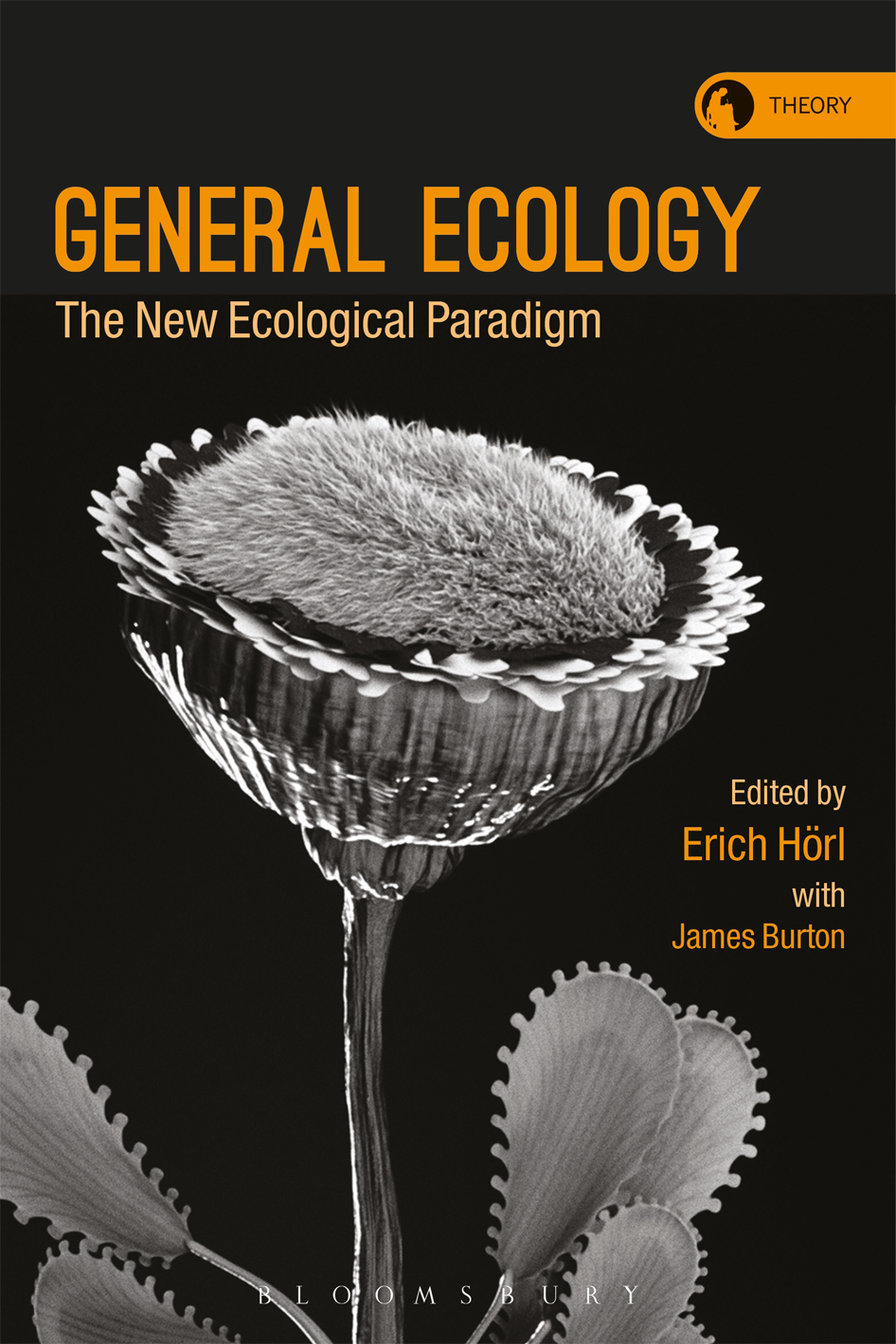Erich Hörl, James Burton (eds.): General Ecology: The New Ecological Paradigm (2017)
Filed under book | Tags: · affect, anthropocene, biopolitics, capitalism, cybernetics, ecology, general ecology, life, nature, philosophy, systems theory, theory

“Ecology has become one of the most urgent and lively fields in both the humanities and sciences. In a dramatic widening of scope beyond its original concern with the coexistence of living organisms within a natural environment, it is now recognized that there are ecologies of mind, information, sensation, perception, power, participation, media, behavior, belonging, values, the social, the political… a thousand ecologies. This proliferation is not simply a metaphorical extension of the figurative potential of natural ecology: rather, it reflects the thoroughgoing imbrication of natural and technological elements in the constitution of the contemporary environments we inhabit, the rise of a cybernetic natural state, with its corresponding mode of power. Hence this ecology of ecologies initiates and demands that we go beyond the specificity of any particular ecology: a general thinking of ecology which may also constitute an ecological transformation of thought itself is required.
In this ambitious and radical new volume of writings, some of the most exciting contemporary thinkers in the field take on the task of revealing and theorizing the extent of the ecologization of existence as the effect of our contemporary sociotechnological condition: together, they bring out the complexity and urgency of the challenge of ecological thought-one we cannot avoid if we want to ask and indeed have a chance of affecting what forms of life, agency, modes of existence, human or otherwise, will participate-and how-in this planet’s future.”
With texts by Erich Hörl, Luciana Parisi, Frédéric Neyrat, Bernard Stiegler, Didier Debaise, Jussi Parikka, Bruce Clarke, Cary Wolfe, David Wills, James Burton, Elena Esposito, Timothy Morton, Matthew Fuller and Olga Goriunova, and Brian Massumi.
Publisher Bloomsbury Academic, London/New York, 2017
ISBN 9781350014695, 1350014699
xv+384 pages
Cultural Anthropology 25(4): Multispecies Ethnography (2010)
Filed under journal | Tags: · anthropology, biology, biopolitics, ecology, ethnography, multispecies, nature
“A new genre of writing and mode of research has arrived on the anthropological stage: multispecies ethnography. Creatures previously appearing on the margins of anthropology—as part of the landscape, as food for humans, as symbols—have been pressed into the foreground in recent ethnographies. Animals, plants, fungi, and microbes once confined in anthropological accounts to the realm of zoe or “bare life”—that which is killable—have started to appear alongside humans in the realm of bios, with legibly biographical and political lives. Amid apocalyptic tales about environmental destruction, anthropologists are beginning to find modest examples of biocultural hope—writing of insect love, of delectable mushrooms that flourish in the aftermath of ecological destruction, and of microbial cultures enlivening the politics and value of food.
Multispecies ethnographers are studying the host of organisms whose lives and deaths are linked to human social worlds. A project allied with Eduardo Kohn’s “anthropology of life”—“an anthropology that is not just confined to the human but is concerned with the effects of our entanglements with other kinds of living selves”—multispecies ethnography centers on how a multitude of organisms’ livelihoods shape and are shaped by political, economic, and cultural forces. Such ethnography also follows Susan Leigh Star, who suggests “it is both more analytically interesting and more politically just to begin with the question, cui bono? than to begin with a celebration of the fact of human/non-human mingling”.” (from the Introduction)
Edited by Eben Kirksey and Stefan Helmreich, with contributions by Eva Hayward, Agustin Fuentes, Celia Lowe, and Jake Kosek.
PDF (updated on 2015-2-13)
Additional material (journal website)
Beatriz Preciado: Testo Junkie: Sex, Drugs, and Biopolitics in the Pharmacopornographic Era (2008–) [ES, EN, BR-PT]
Filed under book | Tags: · biopolitics, body, cyborg, desire, drugs, feminism, gender, pharmaceutics, pornography, queer theory, sex, sexuality, technology, transgender

“What constitutes a ‘real’ man or woman in the twenty-first century? Since birth control pills, erectile dysfunction remedies, and factory-made testosterone and estrogen were developed, biology is definitely no longer destiny.
In this analysis of gender, Beatriz Preciado shows the ways in which the synthesis of hormones since the 1950s has fundamentally changed how gender and sexual identity formulated, and how the pharmaceutical and pornography industries are in the business of creating desire. This riveting continuation of Foucault’s The History of Sexuality also includes Preciado’s diaristic account of her own use of testosterone every day for one year, and it’s impact on her body as well as her imagination.”
Spanish edition
Publisher Espasa Calpe, Madrid, 2008
ISBN 8467026936, 9788467026931
324 pages
English edition
Translated from the French by Bruce Benderson
Publisher The Feminist Press at the City University of New York, 2013
ISBN 1558618376, 9781558618374
427 pages
Reviews: Marcie Bianco (Lambda, 2013), Johanna Fateman (BookForum, 2013), Deborah Harris-Moore (Make, 2014), Karmele Mendoza Pérez (Nordic Journal of STS, 2015).
Commentary: McKenzie Wark (Public Seminar, 2013).
Interview (Ricky Tucker, The Paris Review, 2013).
Wikipedia-FR
Publisher (ES)
Publisher (EN)
WorldCat (ES), (EN)
Testo Yonqui (Spanish, 2008, 3 MB, updated on 2019-6-6)
Testo Junkie (English, trans. Bruce Benderson, 2013, updated on 2019-6-6)
Testo Junkie (BR-Portuguese, trans. Maria Paula Gurgel Ribeiro with Verônica Daminelli Fernandes, 2018, added on 2019-6-6)


